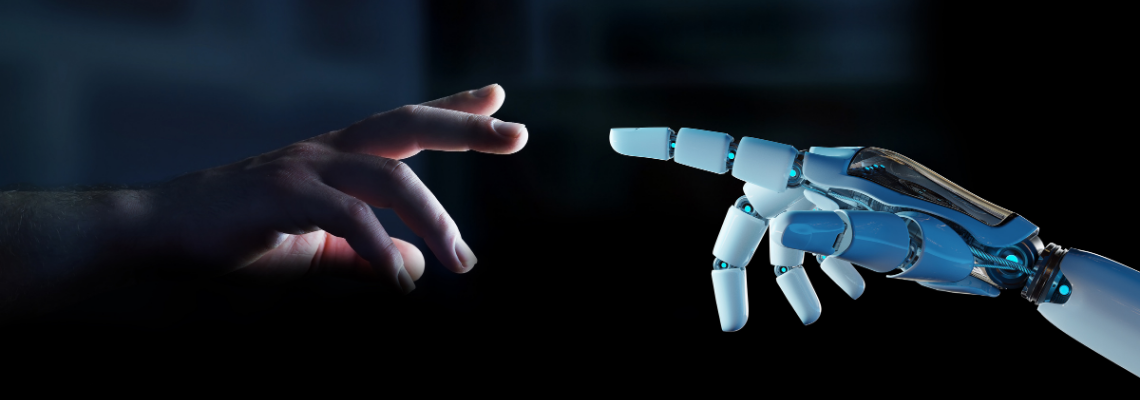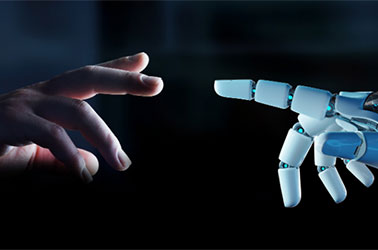

Author : Ashley Mehta
Why Nolij Thinks AI Will Lead to A More Collaborative Workforce
Artificial Intelligence (AI) is being rapidly incorporated into the workplace and our daily lives, fundamentally disrupting the way we live and work. Machines are transforming the nature of work and the workplace itself by taking over more of the tasks performed by people, complementing the work that we do, and even performing certain tasks that go beyond human abilities. In medicine, machine learning algorithms are used to assess images such as scans and x-rays, looking for early warning signs of disease. New generations of AI-powered autonomous systems are increasingly being employed in a variety of fields, ranging from self-driving cars to customer service bots and automated supermarket check-outs. Concern over this looming shift is widespread. AI is often perceived as something that will eventually replace people, lead to widespread job losses and devalued interpersonal relations at work.
When reflecting on AI in the workplace many people envision a dystopian environment where robots take control of day-to-day activities or decisions, essentially making people obsolete. It is emerging AI systems beyond-human cognitive abilities that many fear will dehumanization the future workforce. So, how will AI technologies really change the role of people in the workplace of the future? AI will automate repetitive, process-oriented, schedule-related tasks, which will allow employees to focus on more people-oriented activities, like employee engagement, and utilize skills such as empathy, social skills, and emotional intelligence, analysis and big-picture decision making. Taking these factors into account, we built an AI product called Renaissance to help procurement and acquisition professionals. Renaissance scans millions of documents at lightning speed to locate relevant data and frees up the workforce to focus on mission-critical work. Our AI product allows employees to concentrate on the soft skills required to move the business forward while automating operational processes.
As people skills become the focus, higher cognitive skills such as analysis, creativity and critical thinking will be even more valuable. These skills will give organizations the competencies to be more innovative, which will in turn lead to rapid growth. Therefore, organizations benefit from an increased in productivity generated by greater automation, meaning more revenue that can be spent on creating jobs throughout all the sectors.
Renaissance demonstrates that the dystopian perception of AI domination over people in the workplace is not wholly accurate. The unique capabilities of human beings are more relevant than ever, even in the face of rapid technological progress. We embrace AI technologies by exploring how it will augment human capabilities to cultivate a broader view of systems. In direct contrast to dystopian perceptions, AI could lead to a workforce based on enhanced human collaboration.
However, what we do anticipate is that employees will need to contend with significant workforce transitions by acquiring new skills and adapting to the increasingly proficient machines in the workplace. As company leaders, it will be imperative for us to navigate large-scale change in a variety of areas while keeping human capabilities and values front and center. While AI will undoubtedly displace some jobs, such displacement will create new opportunities as adoption to new technologies have done previously. For example, we have seen a near eradication of jobs like switchboard operator, travel agent, or elevator operator. Meanwhile, new titles like data scientist, app developer, and social media director have emerged. We at Nolij promote forging a partnership between AI and the workforce to create optimal outcomes for our clients, rather than a competition between people and machines.